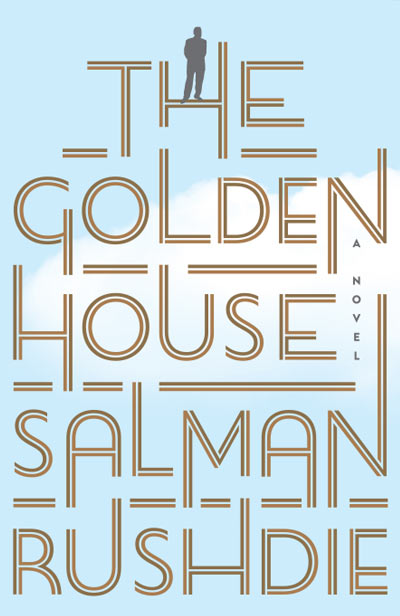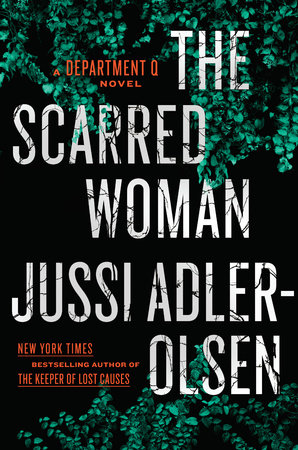The first few years of Helena's life, I used to imagine her dying. All the time. It was exhausting. Not senseless, horrific deaths, exactly. Well, yes, that, but very
possible senseless, horrific deaths.
In the beginning I thought they might be premonitions, but it didn't take long to realize they were warnings.
For example, pushing her stroller down the sidewalk, I'd imagine — very vividly, I might add, almost hallucinatorily, like a glimpse of an alternate parallel existence — a random car swerving up onto said sidewalk, putting us — most importantly, her — in mortal danger. I'd imagine throwing myself in front of her, or maneuvering the stroller out of the car's path. Or I'd glance away and she'd be face down in the wading pool. Or the approaching dog would turn out to be rabid and think of her as an easy meal. Or she might decide to put a pencil up her nose, all the way up her nose. I'd see blood, all over my flesh and blood, and my breath would catch in my chest, and I'd replay the instant, over and over — how could I save her?
Now, it wasn't "obsessive/compulsive" in the sense that it didn't affect how I lived my life (our lives). I still walked down the sidewalk, went to the wading pool, sat in the park, left her unattended (for seconds, minutes?) at a time. It's only effect was to make me hyper-vigilant. And that's a good thing. I was constantly rehearsing deadly scenarios and optimizing my responses. The hormones of new motherhood fed the ninja instinct. Ninja for mommies.
The older, more self-sufficient Helena got, the fewer and farther between my imaginings. But I still have them, these dark visions.
It took years to realize I wasn't alone in this experience. It's a hard thing to talk about without coming off as crazy, but I've heard other mothers talk about imagining the worst, and how they learned to use it as a tool for creating a safe environment. It's a safety mechanism regarding the child, but also, perhaps counterintuitively, a sanity mechanism for the mother self, to assure that you have considered all possibilities and are doing everything you can for a potentially endangered child. That you are a good mother.
This is the closest I come to understanding what Samanta Schweblin means by "rescue distance" — an algorithm involving the actual distance from one's child in some measure against all potential dangers in the vicinity (calculating number, distance, severity).
Distancia de rescate is the original Spanish title of her first novel.
Why do mothers do that?
What?
Try to get out in front of anything that could happen — the rescue distance.
It's because sooner or later something terrible will happen.
There's not much I can say about
Fever Dream, by Samanta Schweblin, other than wow.
It's an intense reading experience, and creepy, but blessedly short. It reminds me most of
The Other, by Thomas Tryon, possibly only because of the creepy children, but maybe also the vaguely rural setting, the hint of something occult.
The pacing is exquisite. The urgency is masterful.
There's not much I can say that wouldn't be considered a spoiler; however, I'd skimmed through a discussion of the book and didn't feel my experience was diminished by it. But if that kind of thing worries you, stop reading now.
The story (but not the book) really starts about 6 years previous to the current narration. A 3-year-old (or thereabouts) boy, David, appears to have been poisoned. His mother, Carla, takes him to the woman in the green house, and agrees to her conducting a migration of his soul into a healthy body, bringing an unknown spirit into the boy's body, something of each of the souls remaining in the other's body. Spread over two bodies, the poison could be vanquished.
Six years later, Carla relates this to Amanda who is vacationing with her small daughter Nina...
The novel is billed as eco-horror: the ecological implications are hinted at early on but are only manifestly clear relatively late in the story. It's also a story of maternal bonding.
In my initial reading, the supernatural factor is primary; that is, the nature of David and of the transmigration process is top of mind, ever present with every turn of the page. Knowing the original Spanish title, however, changes the thematic emphasis.
Riffing on a fever dream...
1. What are the worms? When do the worms start? Are these worms signalling decomposition of the body? Or do they come earlier, in the poison that bring death? Or I they related to soul migration? They come toward the end of David and Amanda's conversation, but too soon for bodily decomposition, I think. The exact moment of the worms is significant.
2. Is David — the leading, questioning David — real? Does anyone else ever really see David? Is he inside Amanda's head? If so, is he a voice conjured out of her delirium, or did his soul migrate there?
If he migrated there, how long has he been there? Was it after his poisoning, or after Amanda and Nina's poisoning?
3. If the original David's soul was split, who else lives/lived in David's body? Could it have been Amanda? That might explain her obsession with him (Not exactly an obsession: attraction to? She is drawn to him and the story of him. Is that only because of her proximity to him now?). Would that imply her own soul/body was previously weakened.
4. Did he or did he not have all his fingers when he was born? What Carla would give for that first David, an imagined David.
5. Nina speaks in the royal "we." David likes that. (I like it too.) The self is plural.
6. Why is Amanda even vacationing in this godforsaken place? Why did her husband not come with her? She claims he was to join them later, but perhaps she was running from him. Why do I think this?
7. Why are the men so absent? Except for fleetingly, in a dream, and at the end. They are so external, powerless in the face of all this ... motherness.
My husband takes the can and turns it so I can see the label. It's a can of peas of a brand I don't buy, one I would never buy. They're a bigger, much harder kind of pea than what we eat, coarser and cheaper. A product I would never choose to feed my family with, and that Nina can't have found in our cupboards. On the table, at that early-morning hour, the can has an alarming presence. This is important, right?
8. Did Carla orchestrate the poisoning? Certainly she had no control over whether Amanda came to call before leaving town, but it seems like she was looking, waiting, for an opening. She's killing them.
9. Does Carla really take Amanda to the clinic? Why do I feel Carla may have taken Amanda to the green house? "The edge of the neck of her white shirt is stained a light green. It's from the grass, right?" But no, there's a nurse, with blister packs.
10. What's with the dirty hands, dirty with mud? First David's, later Nina's. How is this an effect of migration?
11. David pushes Amanda forward. Forward in time? Just like he pushed the ducks, the dog, the horses. Pushed toward death? A spirit guide? Is he even alive?
12. Carla's gone at the end, her husband says so. Not there just at that moment, or gone for good? Where did she go?
13. The ropes. Amanda feels a rope emanating from her stomach joining her to Nina, but it's metaphorical, an umbilical cord of sorts. David is tied down with ropes while migrating — to make sure the body stays, only the spirit leaves. At the end, rope ties most everything together, except bodies or souls, maybe just representations of them. The rope is for hanging. But when it's finally slack, the rope is a fuse.
14. What is the important thing? Really important? Why is David pushing her toward it? What does Amanda need to understand? Listen to David's father. What does he say that's so important? What did I miss?
Reviews
The Guardian:
Terrifying but brilliant
The Mookse and the Gripes
The New Yorker:
The Sick Thrill of "Fever Dream"
NPR:
Brief But Creepy, 'Fever Dream' Has A Poisonous Glow
The Washington Post:
A haunting story by one of the best young Spanish-language writers
The rope between Helena and me was pulled to its fullest when we lost each other on a hike in a foreign country. The summer she was 12. We survived this. The rope is there and not there.








